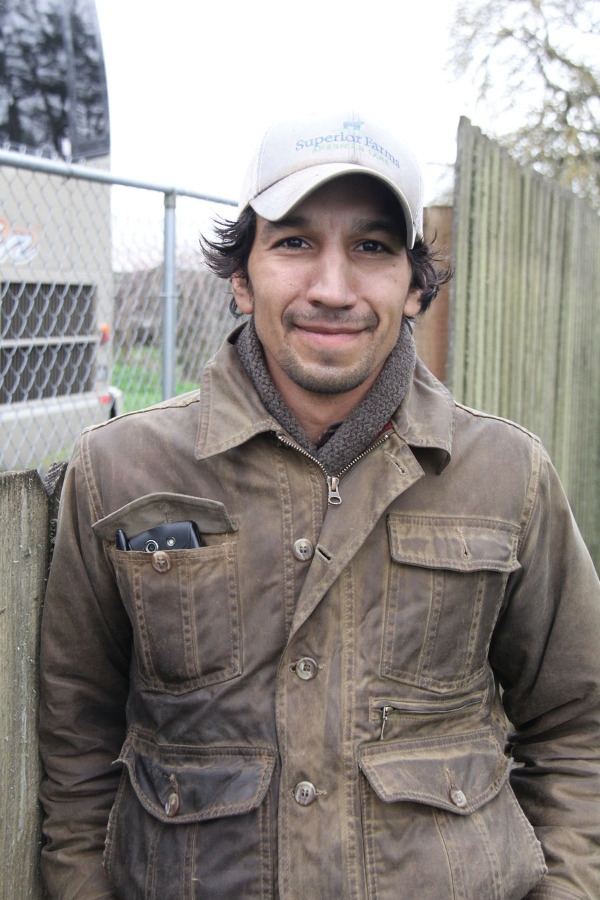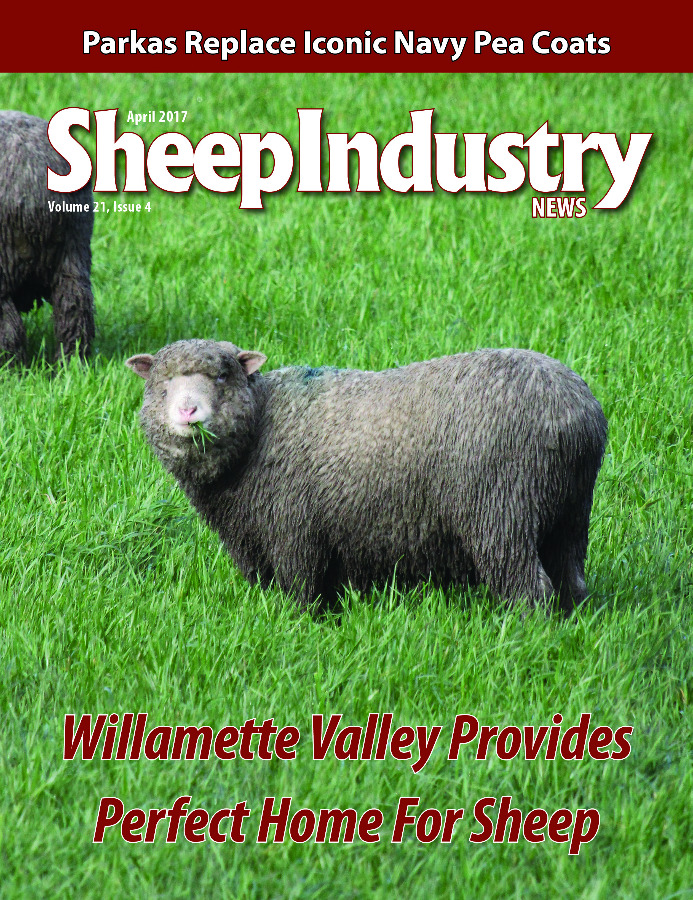Young Entrepreneur: Gabriel Delgado
Working for California’s Kaos Sheep Outfit the past year provided Gabriel Delgado with his first sheep industry experience. Regardless, he brings knowledge of restoration and conservation to a grazing outfit that both preaches and practices sustainable agriculture. At 31, the California native is hoping to start his own operation in the years to come, which spurred him to attend the NLFA Howard Wyman Sheep Industry Leadership School in March.
I have a background in ecological restoration and conservation. I got into agriculture and ranching about four years ago. I started with cattle and just learned how animals can restore land in a more efficient way than humans can do it manually. Instead of ecologoical restoration, I learned the term agricultural restoration, which caught my ear. That’s kind of where I saw sheep and the way that Kaos has been using them in agriculture and as a biodynamic tool to create healthier soils for different types of crops in the Mendocino and Lake County areas.
 I fell in love with it. The patience that you have to have for it, and the patience I’ve developed from it – I used to be kind of a high-strung, impatient person with a short fuse – have really helped me calm down. Working with sheep has really centered my whole being. When everything’s going smoothly, they are so nice to move. Not that everything always goes smoothly. When problems do occur, there’s that puzzle of figuring out what you did wrong. The priority is always to make sure that the animals and the land are healthy. In the end, it is always the sheep and dogs first. Then I can rest my head for the night, until the next morning.
I fell in love with it. The patience that you have to have for it, and the patience I’ve developed from it – I used to be kind of a high-strung, impatient person with a short fuse – have really helped me calm down. Working with sheep has really centered my whole being. When everything’s going smoothly, they are so nice to move. Not that everything always goes smoothly. When problems do occur, there’s that puzzle of figuring out what you did wrong. The priority is always to make sure that the animals and the land are healthy. In the end, it is always the sheep and dogs first. Then I can rest my head for the night, until the next morning.
I want to build my whole life around it. I’m working with Kaos right now, and Rob and Jaime (Irwin) have been a huge influence in mentoring me on the business aspect of animal husbandry and the whole kit and caboodle of raising sheep for wool and meat products. They’ve helped me to write a business plan and look into loans to get my own set of ewes so I can start my own operation. Since my background is in restoration, I’m looking at ways that I can use sheep to restore different areas in California – very similar to what we are doing right now with Kaos. It’s not a new concept, this biodynamic situation where animals are put into perennial crops. It’s an old thing. Europe has been doing it for centuries. I think it was kind of lost through time, but there’s a need for it. It helps reduce costs for the landowners and creates a higher product yield and healthier soils. So, as long as it is efficient for us and cost effective for the landowner, then everyone wins in the end.
My fiancée saw a notice about the leadership school a while back and sent me an email about it. I thought it looked pretty cool, but I put it on the back burner. Then she sent it to me again. I knew I needed to learn more about this type of stuff. Then the Irwins mentioned it. With all three of them urging me to come to the school, I applied. It’s tough, because my mentality is that I’m a worker. I just want to work.
My fiancée is in finance, which is great for me. We balance each other out. I’m not a numbers person or a business person. She pushes me to record what I’m spending and earning and to get my business plan going. She’s really helped me understand the whole concept of running a business. She might not always think I’m listening because sometimes I have this blank look on my face when she’s talking numbers, but I’m listening. I’m learning from it.
I just want to take what everyone is sharing and apply that to my own operation, and I want to reciprocate that and teach it to the next generation. Knowledge is useless if it’s not shared. The industry evolves and grows when we share that knowledge. Out here in Oregon, the industry seems to be thriving because there are sheep everywhere we look. But in California, it’s not that way. It’s more cattle there because everyone wants to be a cowboy. It’s important for people to look at what we’re doing in this industry and to know how hard it is to raise food. This is what we do every day. This meat doesn’t just come from a package at the store. There are a lot of man hours and hard work that go into putting that food on the table.
What I believe is that if you work hard enough, you’ll be successful. We’re looking at these great operations in Oregon this week and these guys are all old-timers now. But you know that they worked their butts off to get where they are today. They were able to grow and build these large operations. Myself and other young producers can learn from that. There are a lot of people here who are third- and fourth-generation farmers and ranchers. I’m not a generational farmer. I come from the suburbs. I had friends who owned land and loved playing in the fields. Growing up, I hated seeing all the beautiful pasture areas around me turn into developments. People don’t understand that open land is often kept open because of farmers and ranchers. They keep them from being developed. Growing up, that clicked in my head. That’s what got me into restoration work. But it’s impossible without animals. It’s all important in the greater system, and we create both meat and wool from it.


